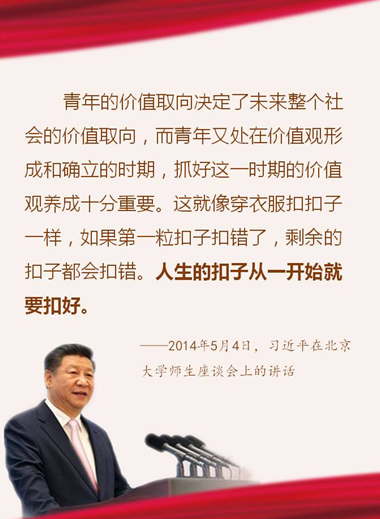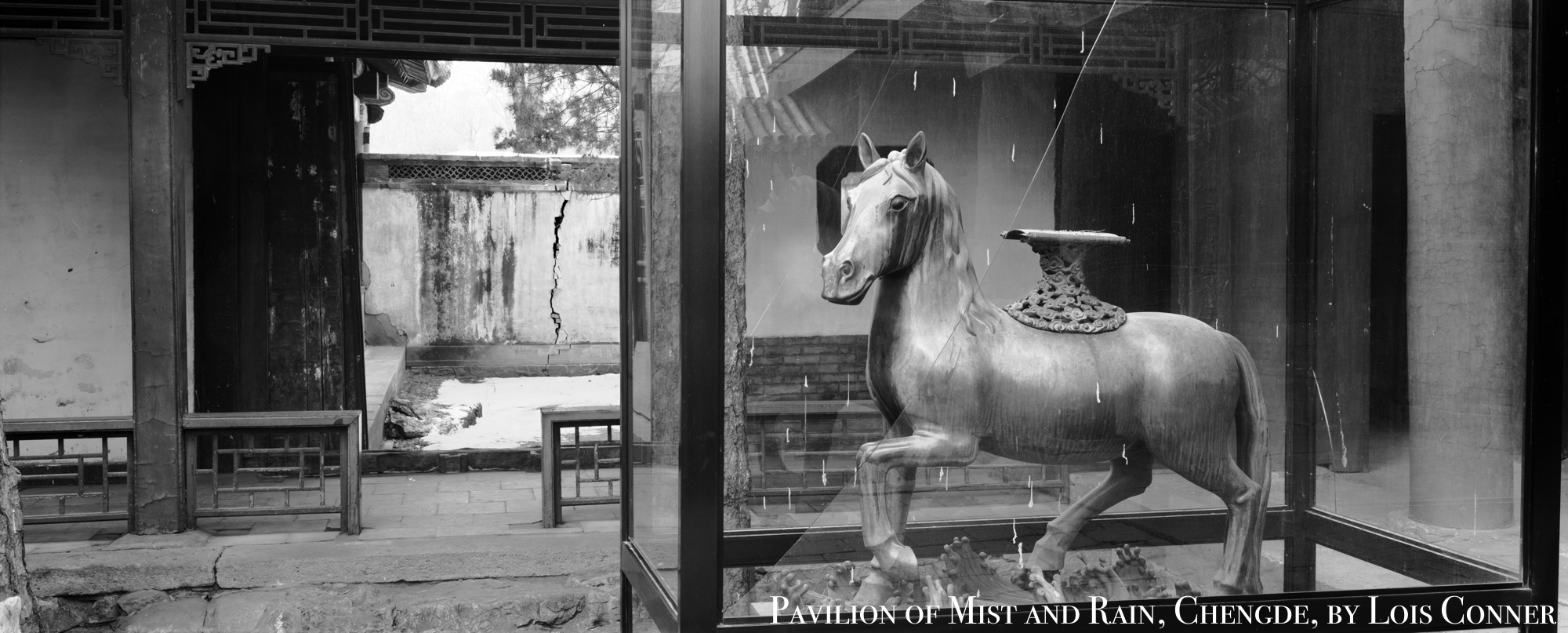Xu Zhangrun vs. Tsinghua University
Voices of Protest & Resistance (XIV)
In his unerring ‘signature style’, Xi Jinping cast a pall over the celebration of the centenary of the May Fourth Movement in the People’s Republic of China weeks before the actual day. The annual commemoration of China’s youthful nationalist demonstrations that broke out on 4 May 1919 when students at universities in Beijing went into the streets to protest against both foreign imperialism and traditional Chinese culture and politics was gazetted as National Youth Day 青年節 in 1949.
In the Republic of China on Taiwan the same day is known as ‘Literary Day’ 文藝節; there the May Fourth Movement is more punctiliously regarded only as part of the broader New Culture Movement that stretched over a decade from 1917 to 1927. Since 1954, Youth Day has been celebrated on the island on 29 March annual, marking the Huanghuagang Uprising of 1911 when seventy-two young revolutionaries in Guangzhou were killed in their struggle with the ruling Qing dynasty. (That date is also known as the ‘3.29 Guangzhou Uprising’.)
Back in Beijing, and only weeks before 4 May 2019, Xi Jinping set the tone for the highly symbolic centenary of May Fourth with a speech at a regular ‘study session’ of the Communist Party’s ruling Politburo:
We need to clarify the relationship between the Party and Chinese youth movements, strengthen political guidance for young people, guide them to voluntarily insist on the Party’s leadership, to listen to the Party and follow the Party.
As the party-state-army leader has previously noted, in the future ‘voluntary assistance’ can only be assured if China’s educators ‘grab children in the crib’ 從娃娃抓起. That is to say, indoctrination and ‘thought work’ must start as early as possible in an individual’s life, and it must continue unabated from kindergarten through to university. In his speech, Xi did at least make a mild concession to reality when he declared that:
We need to answer why young people should connect their individual aspirations to national rejuvenation and socialism with Chinese characteristics.
- For a detailed report on the Chairman’s ‘May Fourth guidance’ in 2019, see 習近平:加強對五四運動和五四精神的研究 激勵廣大青年為民族復興不懈奮鬥, Xinhua, 20 April 2019; and,
- For more on how the May Fourth Movement has been marked over the past century, see ‘May Fourth at Ninety-nine’, China Heritage, 4 May 2018
- Furthermore, to understand better Xi Jinping’s particular vision for China’s ‘New Humankind’, see Homo Xinensis; Homo Xinensis Ascendant; and, Homo Xinensis Militant in China Heritage
***

***
As part of Official China’s tireless efforts to corral one of the most momentous — and many ways fatefully iconoclastic — moments in the country’s modern history, the May Fourth Spirit will in 2019 be extolled with the usual bromides: in particular as in ‘historical dialectical terms’ that moment reflects the political virtues of China’s youth that consist of enthusiastic compliance, mature obedience, slavish devotion to the party-state and a meek internalisation of the Party’s reality distortion field, now known as ‘The China Story’.
Students of China, young and old alike, who have enjoyed and benefitted from periods of relative academic and intellectual freedom in the People’s Republic since 1976, those who have built careers, nurtured families and indulged in lives buoyed by the ebullience of China’s intellectual and cultural world, should now pause to reflect on the fate of learning and creativity in the People’s Republic today.
If you work in an academic institution outside the People’s Republic, the simple ‘Twelve-step Program’ devised by Human Rights Watch and offered below is a practicable guide to how you and your institution can meaningfully, and, yes, still fruitfully, engage with the Chinese world, but in a consciously principled fashion. It will also prove to be useful for institutions and individual academics and students in navigating a relationship with Official China during what may come to be known historically as ‘The Dark Ages of Xi Jinping’.
Be Alert, Not Alarmed.
(& never be surprised.)
— Geremie R. Barmé
Editor, China Heritage
World Book Day
23 April 2019
***
Acknowledgement:
Our thanks to Sophie Richardson and Human Rights Watch for permission to reprint the ‘Code of Conduct for Colleges, Universities, and Academic Institutions Worldwide’
***
Related Material:
- China: Government Threats to Academic Freedom Abroad: New 12-Point Code of Conduct to Help Educational Institutions Respond, Human Rights Watch, 21 March 2019
- Sarah McLaughlin, ‘Human Rights Watch issues recommendations for colleges facing Chinese government censorship’, FIRE, 27 March 2019
- The Foundation for Individual Rights in Education (FIRE)
- Humanism and Its Aspirations: Humanist Manifesto III, a Successor to the Humanist Manifesto of 1933
- The Xu Zhangrun Archive, China Heritage, 1 August 2018-
- Geremie R. Barmé, ‘A Letter to the Embassy of the People’s Republic of China in Australia’, The China Story Journal, 31 December 2012
Resisting Chinese Government Efforts to
Undermine Academic Freedom Abroad
A Code of Conduct for Colleges, Universities, and
Academic Institutions Worldwide
Large numbers of students, scholars, scientists, and professors from China now study or work at colleges and universities abroad. In recent years, Chinese government authorities have grown bolder in trying to shape global perceptions of China on campuses and in academic institutions outside China. These authorities have sought to influence academic discussions, monitor overseas students from China, censor scholarly inquiry, or otherwise interfere with academic freedom.
Human Rights Watch investigations found that the Chinese government attempts to restrict academic freedom beyond its borders. To counter such pressures, ensure the integrity of academic institutions, and protect the academic freedom and free expression rights of students, scholars, and administrators, particularly those who work on China or are from China, Human Rights Watch proposes the following Code of Conduct. While the impetus for and focus of the provisions that follow is pressure emanating from China, academic institutions should apply the same principles to interactions with all governments that threaten academic freedom on their campuses.
All institutions of higher education should:
1. Speak out for academic freedom. Publicly commit to supporting academic freedom and freedom of expression through public statements at the highest institutional levels, institutional policies, and internal guidelines. Explicitly recognize threats posed to academic freedom and freedom of expression by the Chinese government seeking to shape discussions, teaching, and scholarship on campus. Reaffirm a commitment to freedom of inquiry, enabling scholars and students to freely conduct research, and make clear that opposing direct and indirect censorship pressures or retaliation by third parties, including national and foreign governments, is integral to academic freedom.
2. Strengthen academic freedom on campus. Emphasize the commitments and policies in support of academic freedom in student orientation, faculty hiring, handbooks and honor codes, and public gatherings. To avoid self-censorship or retaliation for stating opinions, academic institutions should publicize a policy that classroom discussions are meant to stay on campus, and never to be reported to foreign missions.
3. Counter threats to academic freedom. Encourage students and faculty members to recognize that direct and indirect censorship pressures, threats, or acts of retaliation by Chinese government authorities or their agents against students or scholars for what they write or say threaten academic freedom. Develop and implement effective mechanisms, such as an ombudsperson, to whom such pressures, threats, or acts of retaliation can be privately or anonymously reported.
4. Record incidents of Chinese government infringement of academic freedom. Actively track instances of direct or indirect Chinese government harassment, surveillance, or threats on campuses. Where warranted, they should be reported to law enforcement. Report annually the number and nature of these kinds of incidents.
5. Join with other academic institutions to promote research in China. Academic institutions should work in concert, including by making public statements and complaints where appropriate, in the event of unwarranted visa denials or prolonged delays for research in China. Academic institutions should consider joint actions against Chinese government entities in response to visa denials or other obstacles to academic research.
6. Offer flexibility for scholars and students working on China. Ensure that a scholar’s career advancement or a student’s progress will not be compromised if their research has to change direction due to Chinese government restrictions on research or access to source material in China. Institutions should consider steps, such as granting the scholar or student extra time to finish their research, supporting alternative research strategies, or publishing using pseudonyms, in the face of Chinese government obstacles, harassment, or reprisals. Academic institutions should be open to alternative research strategies when funding or receiving funds for academic work that has been rejected by a Chinese entity. Funders and review boards should provide comparable flexibility.
7. Reject Confucius Institutes. Refrain from having Confucius Institutes on campuses, as they are fundamentally incompatible with a robust commitment to academic freedom. Confucius Institutes are extensions of the Chinese government that censor certain topics and perspectives in course materials on political grounds, and use hiring practices that take political loyalty into consideration.
8. Monitor Chinese government-linked organizations. Require that all campus organizations, including the Chinese Students and Scholars Association (CSSA), that receive funding or support from Chinese diplomatic missions and other Chinese government-linked entities, report such information.
9. Promote academic freedom of students and scholars from China. Inform students and scholars from China that they are not required to join any organizations, and help mentor and support them to ensure they can enjoy full academic freedom.
10. Disclose all Chinese government funding. Publicly disclose, on an annual basis, all sources and amounts of funding that come directly or indirectly from the Chinese government. Publish lists of all projects and exchanges with Chinese government counterparts.
11. Ensure academic freedom in exchange programs and on satellite campuses. Exchange programs and satellite campuses in China should only be undertaken after the completion of a memorandum of understanding with the Chinese counterpart that has been transparently discussed by relevant faculty members and ensures the protection of academic freedom, including control over hiring and firing, and the curriculum.
12. Monitor impact of Chinese government interference in academic freedom. Work with academic institutions, professional associations, and funders to systematically study and regularly publicly report on:
- areas of research that have received less attention because of fears about access;
- decline of on-campus discussions of topics deemed sensitive by the Chinese government, such as the 1989 Tiananmen Square Massacre;
- efforts by academic institutions to curtail Chinese government threats to academic freedom; and
- strategies collectively pursued by institutions to defend and promote academic freedom.
***
Source:
- ‘Resisting Chinese Government Efforts to Undermine Academic Freedom Abroad’, A Code of Conduct for Colleges, Universities, and Academic Institutions Worldwide, Human Rights Watch, 21 March 2019
In Chinese:
-
中国:政府威胁海外学术自由 —— 新的12点行为准则协助教育机构应对, 人权观察, 2019年3月21日
抵制中国政府在国外破坏学术自由
全世界学院、大学和学术机构通用《行为准则》
大批中国学生、学者、科学家和教授在国外大学学习或工作。近年来,中国政府当局越来越明目张胆地试图在海外校园和学术机构塑造中国的全球形象。有关当局企图影响学术讨论,监视海外中国学生,审查学术研究,或以其他方式干预学术自由。
人权观察调查发现,中国政府限制学术自由的企图已跨越国界。为了应对这种压力,人权观察提出以下《行为准则》,用以确保学术机构的健全,保护学生、学者和行政人员的学术自由和言论自由权,特别是其中从事中国研究或来自中国的人士。尽管下列条款是针对来自中国的压力而拟定,但学术机构在与威胁校园学术自由的任何政府互动时,都应秉持同样原则。
所有高等教育机构应:
- 公开倡导学术自由。通过学校最高层的公开声明、学校政策和内部指导原则,公开承诺支持学术自由和言论自由。明确承认中国政府寻求在校园内引导讨论、教学和奖学金,是对学术自由和言论自由的威胁。重申对研究自由的承诺,使学者和学生能自由进行研究,并明确指出要维护学术自由就必须反对直接、间接的审查压力或第三方报复,不论它是来自本国或外国政府。
- 加强维护校园学术自由。在学生入学、教师聘用、学生手册和荣誉守则以及公共集会等各个方面,均应强调拥护学术自由的承诺和政策。为避免自我审查或因发表意见而遭报复,学术机构应公布课堂讨论不出校园、绝不向外国使领馆报告的政策。
- 抵制对学术自由的威胁。促进学生和教师有此认知:凡是中国政府当局或其代理人因为学生或学者所撰写或表达的内容而加以直接或间接的审查压力、威胁或报复,都是对学术自由的威胁。针对前述各种压力、威胁或报复行为,制定并实施秘密的或匿名的举报机制,例如设置监察员。
- 记录中国政府侵犯学术自由的事件。积极追查中国政府在校园进行直接或间接的骚扰、监视或威胁的事件。必要时应向执法部门举报。逐年报告这类事件的数量和性质。
- 联合其他学术机构共同推动在中国作研究。学术机构应当互相协调,当中国无故拒发签证或长时间推迟研究项目,可适时发布公开声明或抗议。学术机构应考虑针对中国官方机构采取联合行动,以应对拒发签证或其他对学术研究的阻碍。
- 为研究中国的学者和学生提供灵活性。如果由于中国政府限制而无法进行研究或获取中国一手材料,导致学者或学生被迫变更研究方向,应保障他们的教职升等或学业进展不受损害。面临中国政府阻挠、骚扰或报复时,机构应考虑采取因应措施,例如授予学者或学生额外时间完成研究,支持替代研究策略或使用化名出版。学术机构提供或接受资金从事研究但遭中国实体拒绝时,应对改变研究策略持开放态度。资助方和审查委员会也应提供同样的灵活性。
- 拒绝孔子学院。不要在校园里设立孔子学院,因为它们与学术自由的坚定承诺水火不容。孔子学院实际就是中国政府的延伸,它以政治理由审查课程材料中的特定主题和观点,并根据政治忠诚度进行招聘。
- 监督与中国政府有关的机构。要求所有从中国使领馆和其他与中国政府有关实体获得资金或支持的校园组织,包括中国学生学者联合会(CSSA),报告相关信息。
- 促进中国学生和学者的学术自由。让中国学生与学者了解,他们没有义务加入任何组织,并帮助指导和支持他们,确保他们享有充分的学术自由。
- 揭露所有中国政府提供的资金。每年公开揭露所有直接或间接来自中国政府的资金来源和数额。公布所有与中国官方相对机构的合作项目和交流活动。
- 在交换计划和卫星校区中保障学术自由。与中国的交流项目和在中国设立卫星校区只能在与中国相对机构签订谅解备忘录之后进行,这种谅解备忘录必须经过相关教师的公开讨论,并确保学术自由获得保障,包括有关招聘、解雇以及课程的规范。
- 监测中国政府干预学术自由的影响。与学术机构、专业协会和资助方合作,进行有系统的研究并定期公布报告:a)由于欠缺资料来源而较不受关注的研究领域;b)因为中国政府认为敏感而取消校园中特定议题的讨论,例如六四屠杀;c)学术机构遏制中国政府干预学术自由的努力;4)学术机构为捍卫和促进学术自由而共同采取的策略。
***
Source:
-
中国:政府威胁海外学术自由 —— 新的12点行为准则协助教育机构应对, 人权观察, 2019年3月21日

